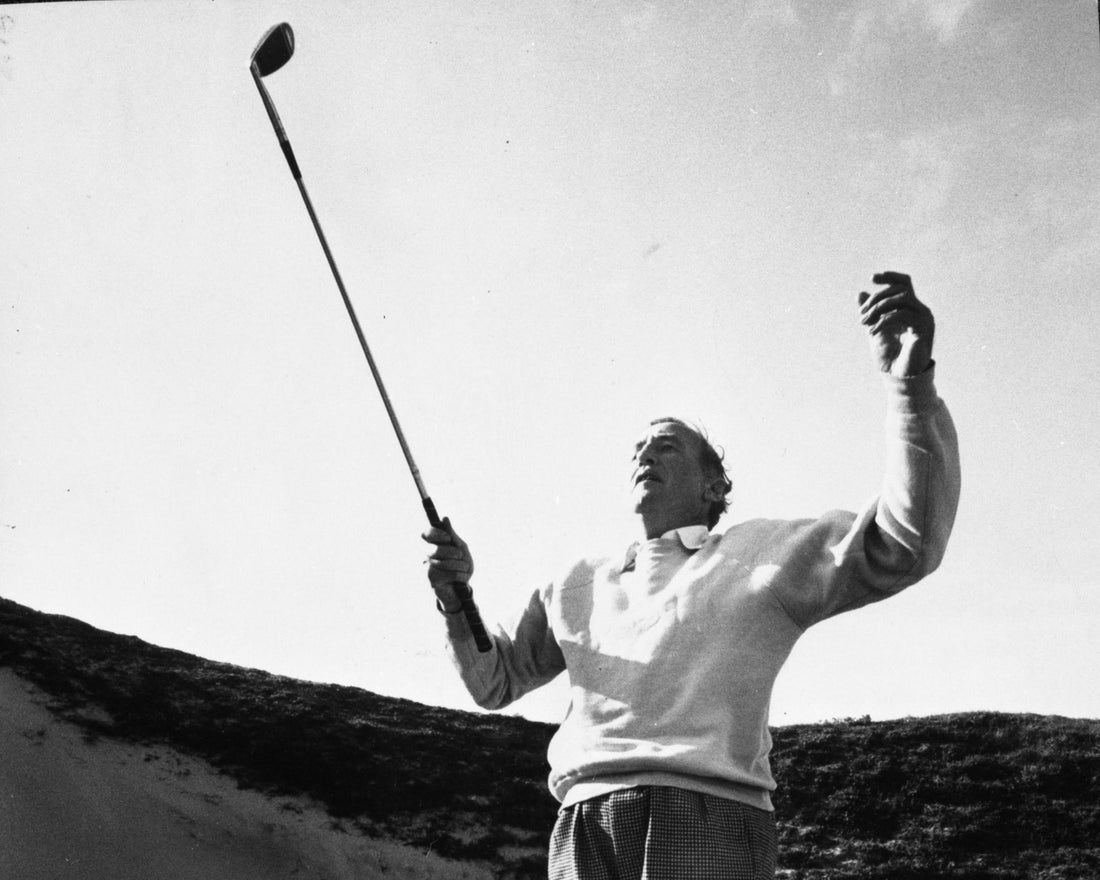It's no small wonder that Ian Fleming and Henry Cotton became fast friends.
Cotton grew up middle class, whereas Ian was upper class born to a father who was a major, a member of parliament and the grandson of a wealthy financier. Despite these very different backgrounds the two men shared passions for all things associated with what we could call 'the good life'.
Especially Golf.
Cotton was born in 1907 in a small village south of Manchester. Fleming was born a year later in the wealthy London district of Mayfair. His father was a member of parliament, his grandfather a Scottish financier. Fleming attended prestigious boarding schools in the UK, a small private school in Austria, and studied at Munich University and the University of Geneva.
Cotton dropped out of school at age 15 to become a golf professional.

After serving as an assistant pro at two other clubs, Cotton was named Head Professional at Langley Park Golf Club at the tender age of 19. By the time of the 1934 Open Championship at Royal St George's, Cotton had become one of Britain's best golfers. His victory at Royal St George's ended a 10-year streak of American victories, and his second round 65 set an Open scoring record that stood until 1992.
A trained pilot, Cotton served in the RAF. He was awarded an MBE for his efforts to raise money for the Red Cross by playing exhibition matches. After the war, he returned to the pro ranks, winning his third Open Championship in 1948 at Muirfield. His ball, a Penfold RF-126.
Fleming's first James Bond novel, Casino Royale, was published in 1953 and was an immediate best-seller. Eleven more Bond novels would follow, most notably Goldfinger and its famous golf scene in 1959. In fact, Fleming gifted Cotton with a signed first edition of Goldfinger that year. Inside he wrote: 'To Henry Cotton, who may be amused by 'pp 92-131!'.

Like Fleming, Cotton grew to living life well. Described as 'conspicuously ambitious and intelligent', Cotton was a compelling personality, cut from a similar cloth as the man he called his hero, Walter Hagen. Cotton was known as a hard worker - he'd often practice until his hands bled - as well as a hard partier. He loved his champagne, caviar, and tailored clothes. He drove a Rolls, married an Argentine heiress and lived in a five-star hotel suite. One of his favorite sayings was, fittingly, 'the best is always good enough for me.'
Perhaps all this is the reason it was said in a biography of Ian Fleming that he 'modelled Bond of a young Henry Cotton'.

'Mr. Fleming is quite a golfer by the way', Cotton writes. 'So, this photograph might be misleading to "his customers", but he has a good hard action, which could be put to even better use with some educated footwork'.
‘He was a great one to gamble', remembers a former Royal St. George’s pro. ‘He used to squeeze the last stroke out of his handicap. The game would be deadly serious. He hated to lose, and everybody had to play like hell.’ Fleming himself described his swing (and, coincidently, Bond’s swing in Goldfinger), as short and flat. ‘It’s been likened to a housemaid sweeping under a bed.’ Both Fleming and Bond played to a 9 handicap.
During that time the retired Cotton was on staff with Penfold as a kind of professional emeritus. There’s a famous televised match at the Old Course between Cotton and Gene Sarazen and you can plainly see Cotton’s Penfold staff bag. Given Penfold’s status in British golf at the time, and the fact that Cotton’s final professional victory came at the Penfold Tournament at Maesdu in 1954, is it any wonder that Bond played a Penfold Hearts in his match with Goldfinger?

Years of heavy drinking and smoking – he’d had a four-pack-a-day habit for years – finally caught up with Fleming in 1964. That August, just weeks before the film version of Goldfinger was to premier, Fleming took ill while having lunch at Royal St. George’s. He would die the next morning of a heart attack at the age of 56, just two days after being named the club's captain elect.
Sean Connery was in Italy playing golf with actor Rex Harrison when he heard of Fleming’s death. Connery and Harrison decided to play an extra 36 holes in Fleming’s honor. Connery played, what else, a Penfold Hearts.



8 comments
SdBphPXcUgYHNjn
scOLTDglfaib
RNCDYdMOnaxIKFVl
Wonderful stories, tremendous ✍️ writing! A shame Ian Fleming passed at such a young age. The Penfold brand is iconic …
Wonderful stories, tremendous ✍️ writing! A shame Ian Fleming passed at such a young age. The Penfold brand is iconic …